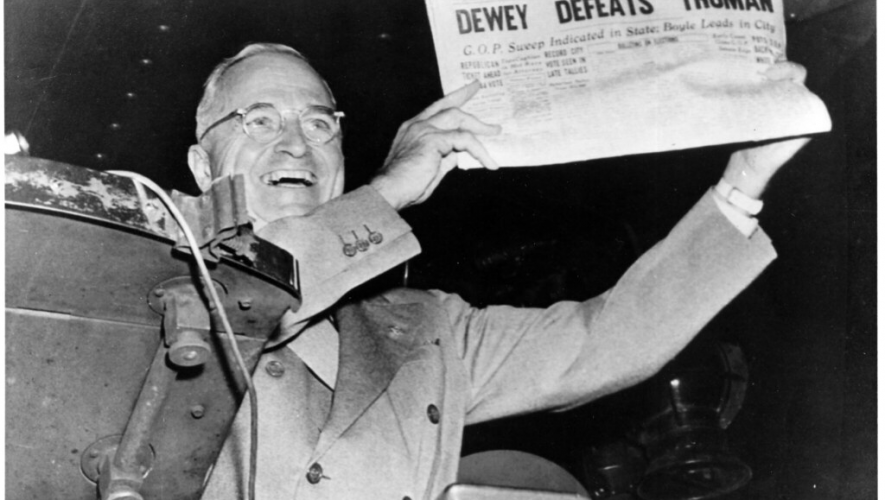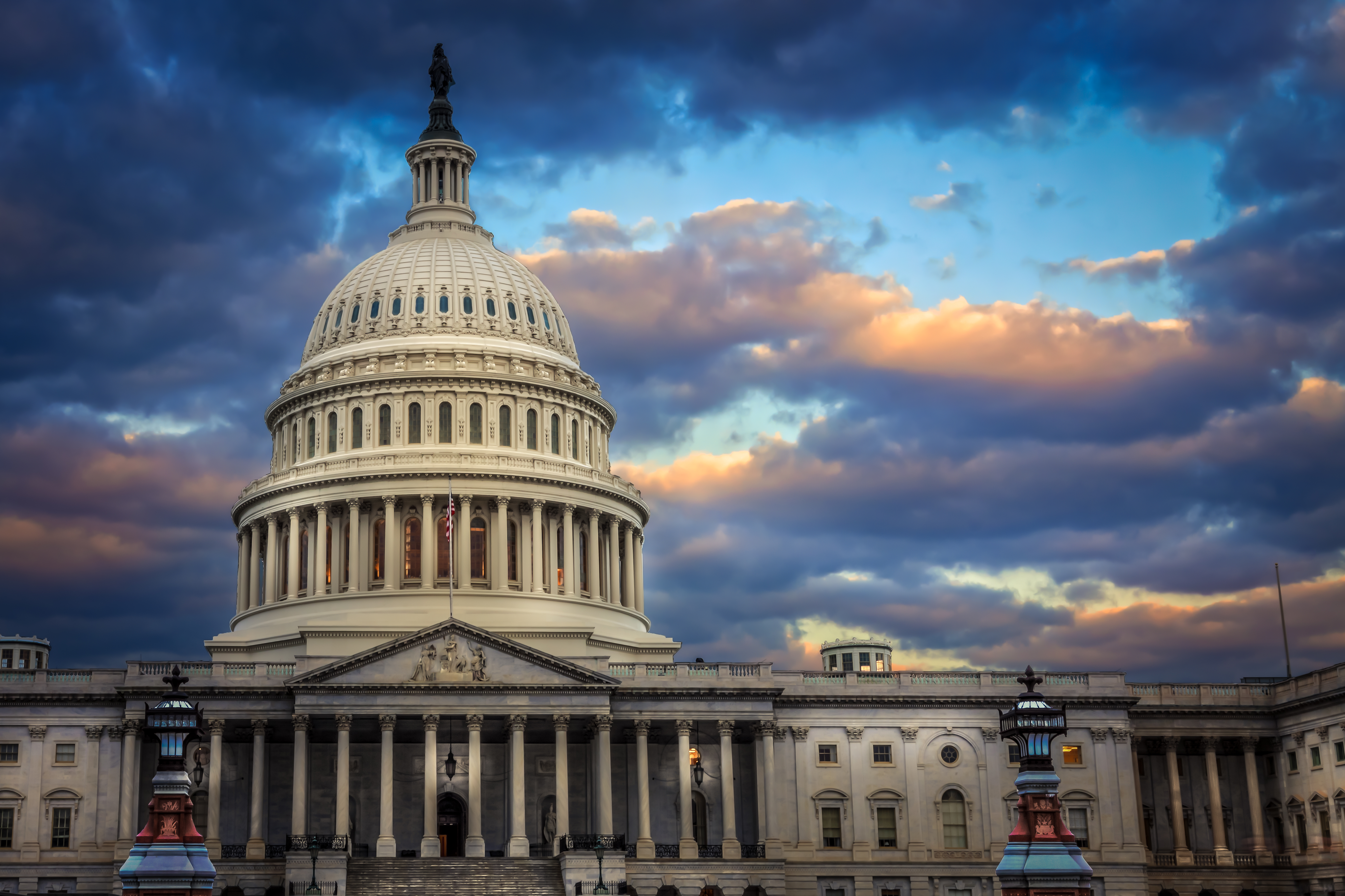During presidential election cycles, many Americans spend weeks with their eyes trained on their television screens. News stations are often the first place voters look to for election updates, as it is customary for the Associated Press (AP) to provide networks with projections before polls close. Election night coverage in 2020 garnered an estimated fifty-seven million primetime viewers.
Presidential elections are always contentious. Last year’s election and its accompanying storming of the Capitol was so far beyond contentious that some were led to ask – “Is this a coup?” In the face of such unprecedented circumstances, the role of media outlets in projecting election winners came under greater-than-usual scrutiny. Historically, however, the media’s unofficial partnership with American elections has been crucial to disseminating election information in an accurate and timely manner—at least in most cases.
People are more tuned in to media coverage than ever, and in some cases, increasingly wary of its role in electoral politics. However, just as people’s appetites for timely news have grown, so too have outlets’ desires to improve their reporting accuracy and speed.
But can they balance their ethical, truth-centric commitment to the electorate with their commercial commitment to generate profit? Hopefully, the two new forecasting systems which were launched last year will aid in the pursuit of fast, reliable coverage.
The Role of the Media in Elections
Before the internet and television became everyday companions to American life, election results weren’t known until the convention of the Electoral College—days or weeks after the election. And before the invention of the telegraph in the 1800s, there was no unified election day, so results trickled in over days.
The AP first began declaring winners in 1848; ever since, it’s been a political mainstay. Per AP writers Alexandra Olson and David Koenig, the media’s role in elections “evolved from an instinct to report the news, but mostly because Americans didn’t want to wait to find out the results until mid-December.”
Now, in the high-speed information age, the AP and other news networks have met high demand for timely election coverage. Since the media combines polling data with official data from election sources, it follows ethical practices such as waiting until final polls close to project a winner. These standards are constantly improving to ensure the most accurate information is sent out as efficiently as possible. For instance, NBC News’s decision desk issues a call only when their statistical confidence is 99.5 percent, and other networks operate on similar standards. Though there have been some notable mistakes in calling elections too early, these errors were corrected promptly.
After a 2020 election cycle with record turnout, many criticized the media’s role in calling the election, with some even questioning the validity of the process itself. While there have been cries of election irregularities and reports of poor polling accuracy, media coverage was exhaustive (and exhausting for anchors). Perhaps as a result, broadcast media is still one of the first sources citizens turn to for election results, and it largely operates to a high standard of confidence.
The process by which the AP follows election results and then sends them out to other news outlets is well established. Its network of freelance stringers liaise with county officials to collect vote totals, while its own journalists monitor electronic feeds from state election officials. This allows the AP to act as a data hub, collecting and distributing information to national outlets.
From there, networks that are part of the National Election Pool (NEP)—including NBC, CNN, ABC, and CBS—aggregate those results with their own exit polls and disseminate them. The NEP is a polling consortium that was established in 2003 to pool resources to gather vote and exit poll data. Before that, TV networks individually examined data and called winners. The development of the NEP, combined with the increased prevalence of TVs since 1960, has propelled TV coverage to prominence.
The Changing Role of the Media in Elections
The NEP faced a turning point when Donald Trump won in 2016. Their tried and true polling methods had proven less than perfect. After the election, two prominent members of the NEP—the AP and Fox—left for two new systems that were supposedly faster and more accurate than the industry standard that so famously failed to project the former president’s victory.
“Following 2016 . . . The two concerns were primarily the growth in the mail-in vote, and whether or not the exit poll was covering those people adequately enough. And the second was a tendency, for whatever reason, for there to be differential non-response—people who voted for one party seemed to be overrepresented in the sample than were represented when you actually count the vote.”
–Arnon Mishkin, Director of the Fox News Decision Desk
Premature projections happen and are not new. One of the most prominent examples happened in 1948 when the media called the presidential race for Thomas Dewey over Harry Truman; it resulted in the now-notorious image of a smiling, victorious Truman holding up the erroneous Chicago Daily Tribune headline, “Dewey Defeats Truman.” In that case, the Tribune explained that it had sacrificed accuracy to be the first outlet to report the results. Tim Jones of the Tribune wrote in a retrospective last year that the paper was “lulled into a false sense of security by polls that repeatedly predicted a Dewey victory.”
Another famous case is the 2000 election, when multiple media outlets prematurely called Florida for Vice President Al Gore. The vote count was so close that media networks, operating on various standards of error, made calls that ended up being wrong. Though a recount began in Florida, the Supreme Court halted counting before it was completed, leaving the final difference between the two candidates at just 537 votes.
In both of these cases, as soon as accurate information became available, outlets corrected themselves. This is the expected response from news sources, and is what maintains trust and ethical standards.
Did the New Systems Fare Better in 2020?
In 2020, the role of the media in calling results was particularly notable, especially given concerns over the new systems, dubbed AP VoteCast and Fox News Voter Analysis. Both used new forms of polling—including phone and internet polls—that the NEP didn’t.
Fox was the first to call Arizona for Joe Biden in the wee hours of election night, followed shortly by the AP the morning of November 4, putting him at 264 electoral votes—still shy of the 270 necessary to win. The rest of the NEP took nine days to reach the same conclusion based on the traditional exit poll method. Fox and the AP made early calls, betting on the accuracy and speed of their new polling systems, and given that Biden’s lead in Arizona dwindled to less than one percent immediately following election day, they were risky calls.
If Trump had overtaken Biden in Arizona, Fox and the AP would have had to retract their calls—at least until any possible recount had taken place. In that case, the NEP members who had still not made a call could have been in a much better position to make the right one.
One could postulate a more drastic situation if, using their new systems, Fox and the AP had prematurely given Arizona to Biden in a scenario that put him at or over 270 electoral votes. With a margin of less than half a percent, it was certainly possible.
It remains to be seen whether the new systems were accurate enough to have predicted that Biden would retain his lead, or if Trump’s late-stage gains were unforeseen. While the media has been an established institution in the dissemination of election results, the exact effects of these newer systems enabled by new technology are not yet fully understood. Perhaps 2020 could have ended up in the annals of mistaken calls.
Media Scrutiny During and After the Election
During the election cycle, many politicians—mostly Republicans, including then-Senate Majority Leader Mitch McConnell and Senator Lindsey Graham—argued that the media plays too integral a role in electoral politics.
Speaking before Congress on November 9, McConnell said, “The Constitution gives no role in this process to wealthy media corporations . . . Let’s not have any lectures, no lectures about how the president should immediately, cheerfully accept preliminary election results from the same characters who just spent four years refusing to accept the validity of the last election.” Senator Roy Blunt said on November 8 that, “The media can project, but the media doesn’t get to decide who the winner is.”
Their comments echoed similar sentiments surrounding the 2016 election, which by many accounts was an upset. According to a Washington Post election analysis from mid-2017, “election forecasters were predicting a Hillary Clinton win with anywhere from 71 to 98 percent confidence.” McConnell made the point that media reporting of election results is unofficial, and that an election is not over until the Electoral College convenes to cast votes. This happened on December 14, with Biden winning 306 electoral votes.
While McConnell was correct that the media has no explicit constitutional role in elections, it has the best infrastructure to disseminate accurate information quickly. News outlets also have an innate motivation to maintain accuracy and ethical standards in order to retain audience trust.
Graham similarly challenged the media’s role, saying on November 8 that “This is a contested election. The media doesn’t decide who becomes president. If they did, you would never have a Republican president forever [sic], so we’re discounting them.”
Since the contested 2000 election, there have been two Republican presidents and both races were promptly called correctly by the media. In 2004, John Kerry conceded to George Bush the day after the election with no media reporting errors. In 2016, the AP called the race for Trump the morning after Election Day and did not call the election for Hillary Clinton as claimed by some online.
Finally, Trump himself criticized the media’s role, tweeting on November 8, “Since when does the Lamestream Media call who our next president will be? We have all learned a lot in the last two weeks!” Unlike many in the party, however, several GOP politicians pushed back against the president, including some of his close allies. Several Republicans opposed efforts by Trump and his legal team to challenge the results, including Senator Mitt Romney and former New Jersey Governor Chris Christie.
“I’ve been a supporter of the president, I voted for him twice but elections have consequences and we cannot continue to act as if something happened here that didn’t happen,” Christie stated on November 22, going on to describe Trump’s legal team as a “national embarrassment.” Republicans who have spoken in favor of accepting the media election results were few and far between, with seven Republican senators objecting to the certification of Arizona’s election results.
Republicans seem to exhibit higher distrust for media results than Democrats and independents. A study by John R. Lott, Jr, found a “large drop off in Republican voting rates” in the Florida Panhandle in 2000. The Panhandle tends to be a reliably Republican area, and Lott argues that the early media call for Gore in Florida may have dissuaded voters from turning out and perhaps even swayed the result.
When it was clear Gore had not won and media outlets retracted their calls, those voters may have felt betrayed and lost respect for the media. This may have eroded Republican trust in election coverage in a lasting manner.
Due to the frenetic pace of the news cycle and the reliable infrastructure it possesses, the media has an indispensable institutional role in reporting election results. As long as the press maintains a high standard of ethics and statistical confidence, it should continue to function in that capacity.
In elections to come, people will want fast, reliable election information, and news outlets will continue to strive for new and improved ways to deliver that information ethically. Hopefully, the new VoteCast and Voter Analysis systems and others that follow will aid in the pursuit of accurate results, and, more importantly, avoid high-profile mistakes.



